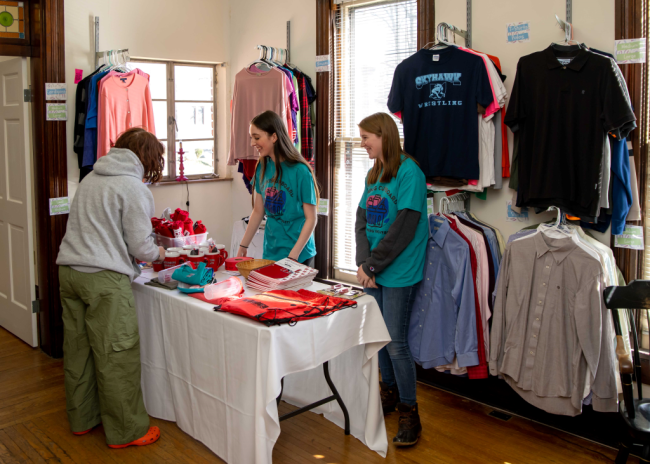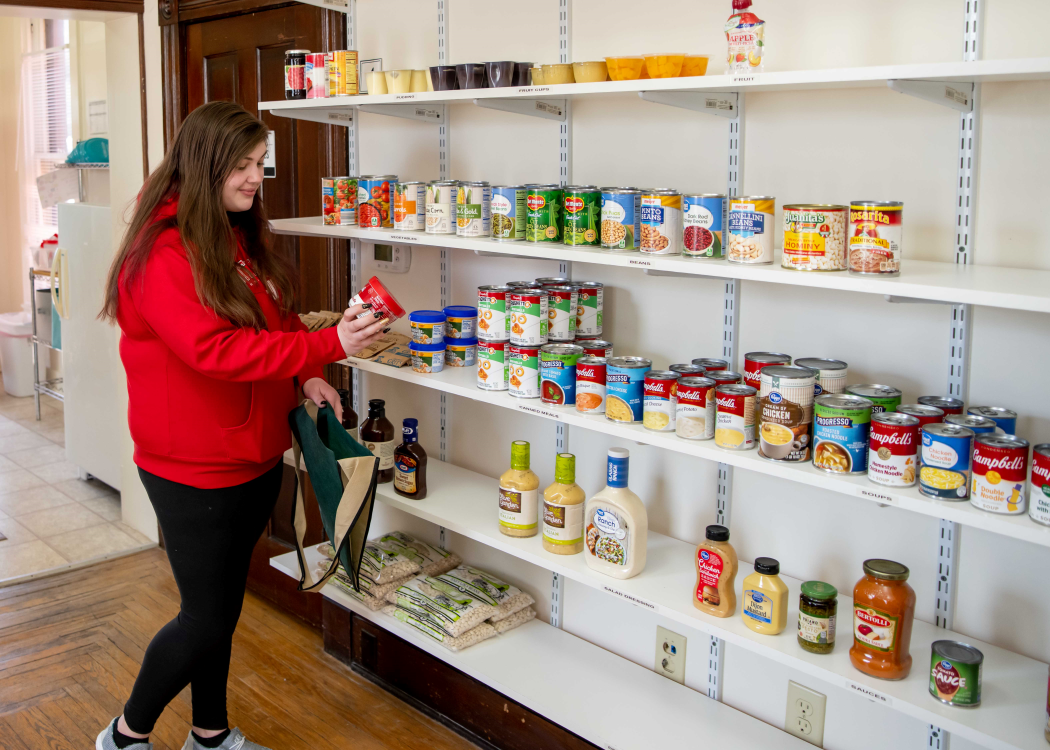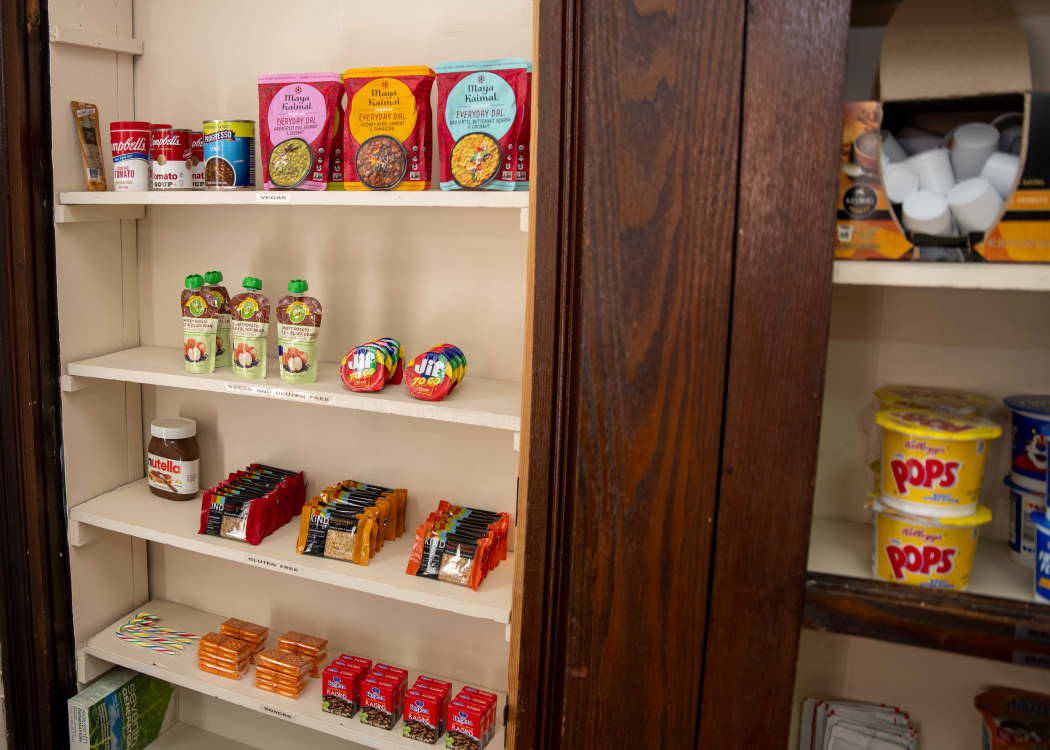You have /5 articles left.
Sign up for a free account or log in.

Student workers run and manage Wittenberg College’s basic needs facilities, distributing free food and clothing items to their peers.
Wittenberg University
Wittenberg University in Ohio combined its career closet and its basic needs office in 2021 and hosted a grand reopening of the space in March. The reopened Campus Cupboard and Wittenberg Wardrobe expands the institution’s basic needs resources and outreach.
Students are responsible for organizing the shelves, restocking items, establishing hours of operation for the facility and being a friendly face to those coming to use its services.
Student workers also manage the facility, creating a culture of success both for those receiving aid and those administering it.
What it is: Located in a house near the university bookstore and student center, the Campus Cupboard and Witt Wardrobe share a space with the Susan Hirt Hagen Center for Civic and Urban Engagement.
The space is open twice weekly, on Mondays from 4 to 6 p.m. and Wednesdays between 10 a.m. and noon, with hours selected to accommodate commuter and residential students.

Wittenberg University
During their visit, students can drop by and take as much as they need, no questions asked. The cupboard staff do not collect student information in relation to what they shop for, but they do track what items are most popular.
The Campus Cupboard went through a grand reopening on March 20, adding additional storage space and resources for students, including personal care items.
Wittenberg had a smaller food pantry for students on campus, which remained open during the COVID-19 pandemic, but students initiated a reopening of this larger space.
What’s the need: Around 35 percent of Wittenberg’s students are Pell eligible, and 14 percent of Ohio residents in general live at or below the poverty level, says Matevia Endowed University Pastor Tracy Paschke-Johannes. The institution’s demographics closely mirror that of the state, with many students coming from the surrounding area.
As a traditionally Lutheran institution, Wittenberg sees student wellness as providing for students emotionally, spiritually and physically to promote academic success.
“We’re focused on student success and creating an interconnected web of support for students,” Paschke-Johannes says. “Our goal is to remove any barriers to success.”
Many students shop for personal care items—like dish or laundry soap—or sanitary care products, but the most popular needs are shelf-stable foods and breakfast items that might not be available at the dining hall.
“[Students] might be able to make use of their meal plan for lunch and dinner, but for breakfast they might be on their own,” Paschke-Johannes explains.
What’s different: While institutions have long provided students with basic needs resources, with many adding to these during the pandemic, combining a professional clothing closet and food pantry is unique. Often, students come for food, laundry soap or personal care items and leave with clothing as well, Paschke-Johannes says.
Another twist on Wittenberg’s basic needs services is how it operates. The cupboard is an offshoot of Campus Ministries, falling under the pastor’s office in the Student Affairs division. While Paschke-Johannes is the official head of the pantry, its day-to-day operations are led by three student workers.

Wittenberg University
The impact: Student employees learn valuable management skills in scheduling hours, keeping the facilities clean and assisting in communication about and promotion of the facility.
Having student manage the basic needs resources also makes the space more inviting. One of the primary challenges in equipping students with the food and clothing available is overcoming students’ embarrassment or trepidation, Paschke-Johannes says.
If your student success program has a unique feature or twist that you believe is worth modeling, we’d like to know about it. Click here to submit.




